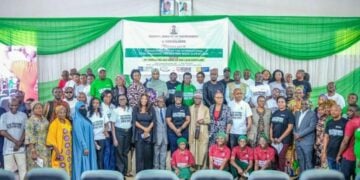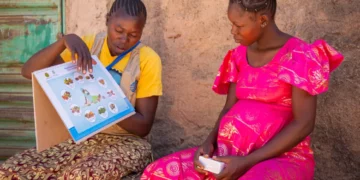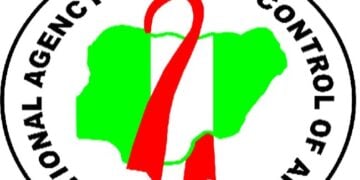The federal government has pledged evidence-based interventions to improve health outcomes in the country, following revelations from the recently launched 2024 Nigeria Demographic and Health Survey (NDHS), which highlights both gains and persisting challenges in fertility, child survival, and maternal care.
The Minister of State for Health and Social Welfare, Dr. Iziaq Salako, said the NDHS remains one of the country’s most valuable tools for informed decision-making, efficient resource allocation, and tracking progress toward the Sustainable Development Goals (SDGs).
According to the report, Nigeria has made progress in several key health indicators, with total fertility rate declining from 5.3 children per woman in 2018 to 4.8 in 2024, reflecting gradual improvement in access to family planning services. Modern contraceptive use also rose from 12 to 15 percent, while satisfied demand for family planning increased to 37 percent.
“These figures show we are moving in the right direction, but they also remind us that more needs to be done to accelerate gains,” Salako said.
On maternal and newborn health, the survey found that antenatal coverage now stands at 63 percent, skilled birth attendance at 46 percent, and postnatal care within two days after delivery at 42 percent, up from 38 percent in 2018.
The under-five mortality rate declined from 132 deaths per 1,000 live births in 2018 to 110 in 2024, though neonatal mortality has stagnated at 41 deaths per 1,000 live births.
“Nearly half of under-five deaths occur in the neonatal period. This is why we have launched the Maternal and Neonatal Mortality Reduction Initiative (MAMII) and the Nigeria Child Survival Action Plan (2025–2029) to scale up context-specific, life-saving interventions,” the Minister noted.
The report also revealed wide disparities in immunisation coverage, with 39 per cent of children fully vaccinated against basic antigens, while 31 percent remain unvaccinated (“zero dose”). Salako described this as “a clear call to action” for states and local governments to take ownership and bridge immunisation gaps.
In addition, the NDHS exposed poor detection of non-communicable diseases (NCDs) such as hypertension and diabetes, with less than 10 percent of adults aged 15–49 ever diagnosed by a health worker, a figure that sharply contrasts with national prevalence rates.
Salako reaffirmed the Tinubu administration’s commitment to using NDHS findings to guide reforms, improve health system efficiency, and ensure better targeting of investments. “Health is central to President Tinubu’s Renewed Hope Agenda. Our focus is on translating data into action for equitable, quality health services for every Nigerian,” he said.
The Chairman of the National Population Commission (NPC), Hon. Nasir Isa Kwarra, described the NDHS as “a national mirror” reflecting how far the country has come and where urgent efforts are needed. He said the survey covered over 40,000 households across Nigeria, generating reliable data for federal and subnational planning.
Kwarra acknowledged the contributions of development partners including USAID, UNICEF, UNFPA, WHO, The World Bank, The Global Fund, and the Bill & Melinda Gates Foundation for their support in implementing the survey.




